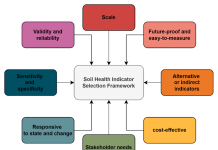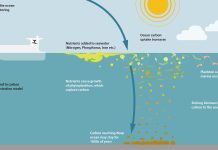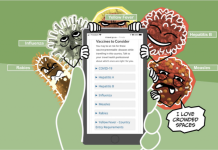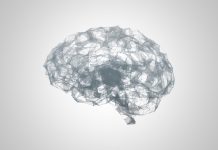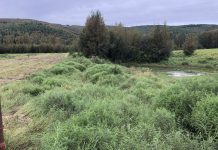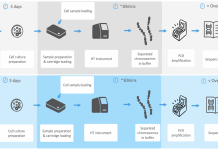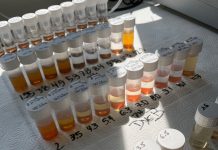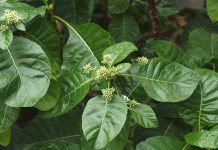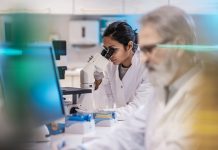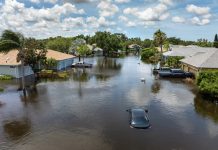Open Access Government produces compelling and informative news, publications, eBooks, and academic research articles for the public and private sector looking at health, diseases & conditions, workplace, research & innovation, digital transformation, government policy, environment, agriculture, energy, transport and more.
Home 2025
Archives
Model thinking for everyday life
Many people rely on quick internet searches for knowledge acquisition. In his book MODEL THINKING For Every Day Life, Richard C. Larson discusses how we can rethink our approach to problem-solving, leading to greater learning in the process.
The microbiome and aging: Unlocking new frontiers in healthy longevity
Research conducted by the USF Microbiomes Institute and the MiaGB Consortium is uncovering the significant link between microbial communities and host biology. This understanding could lead to new therapies for age-related conditions. Shalini Jain, Christian Brechot, and Hariom Yadav provide further insights.
Why “learn-from-anywhere” technology can help solve chronic school absence
Megan Gilmour, Churchill Policy and Deakin University Honorary Fellow, Australia, calls for legislation, technology, and policy to address complex school absence during medical or mental health challenges.
Rethinking the reproductive clock: Can NAD+ preserve fertility?
Recent research indicates that the compound NAD+ offers a promising solution to support fertility and reproductive longevity.
Amino acid nutrition: A vital foundation for canine and feline health
Elizabeth Morris, Ph.D. and Julia Guazzalli Pezzali, DVM, MS, Ph.D., emphasize that amino acid nutrition is a crucial foundation for the health of both dogs and cats.
New strategies for an old problem – Oral vaccines research
Despite their advantages, oral vaccines encounter several challenges. Professor Elizabeth Norton from Tulane University discusses how her team is addressing these issues and their research on developing and testing dmLT and saponin combination adjuvants.
AI4SoilHealth Science: Revolutionising soil health monitoring
Seasoned experts explain here the revolutionising of soil health monitoring through the science of the AI4SoilHealth project.
Ocean nourishment sequestering carbon dioxide in the deep ocean
Phytoplankton have been essential to life on Earth for over 35 billion years. Through photosynthesis, they consume carbon dioxide on a scale comparable to that of forests and other land plants. Edwina Tanner from the WhaleX Foundation shares insights on this and discusses the potential for plankton-based solutions in marine carbon dioxide removal (mCDR) and ocean nourishment.
Teen relevant and open access health information for building vaccine confidence
With the abundance of health information about vaccines online, there is a need for an open educational resource (OER) that empowers youth to understand the importance of vaccines and make informed medical choices.
Role of extracellular electron transfer in the nitrogen cycle
Extracellular electron transfer impacts the nitrogen cycle by enhancing microbial processes and connecting to other biogeochemical cycles. Understanding EET mechanisms provides insights into ecosystem functioning and potential advancements; Arpita Bose and Zhecheng (Robert) Zhang explain.
Computational psychiatry and the opioid crisis: A deep dive
In this interview, we speak with Dr. Bo Cao, a leading expert in computational psychiatry at the University of Alberta, Canada. Dr. Cao discusses how advanced data analysis and machine learning are transforming our approach to the opioid crisis and mental health care, offering new hope in addressing one of North America’s most pressing public health challenges.
Impacts of land clearing on areas containing permafrost
Melissa Ward Jones from the University of Alaska Fairbanks explores the impacts of land clearing on areas with permafrost.
Single chromosome sequencing to obtain genetic phase (haplotyping)
Brian Tait, Chief Scientific Officer at Haplomic Technologies Pty Ltd, examines single chromosome sequencing to obtain genetic phase (haplotyping).
The hidden dangers of breastfeeding misconceptions: A deep dive
In the exclusive interview, Dr. Christie del Castillo-Hegyi, co-founder of the Fed is Best Foundation, sheds light on breastfeeding misconceptions and their devastating impact.
Gender stereotypes in technology startups
Professors Tonoyan, Strohmeyer, and Jennings explore how gender stereotypes shape job application intentions in emerging technology startups.
Decarbonising the textile industry: A revolutionary pigment from the lab to the market in...
Explore the journey of decarbonising the textile industry through the remarkable example of bringing a revolutionary pigment from the lab to the market in three years, starting with the milestones of this captivating journey.
Top team effectiveness and how to develop it
Dr Michael (Mike) Beer, Professor Emeritus from Harvard Business School, explains top team effectiveness and how to develop it.
A legacy of medicine and biodiversity: Protecting the cinchona tree
The endangered Cinchona officinalis, native to the Andean foothills, produced the world’s first anti-malarial drug. Augusta Cueva-Agila explains why it is crucial to conserve this species and how conservation efforts can be implemented.
The European Cancer Pulse: From data intelligence to policy action
Norbert Couespel 1 and Mark Lawler 1, 2 highlight the European Cancer Pulse, a critical tool in tracking cancer inequalities and influencing cancer policy in Europe.
Climate change, water change and the critical role of community resilience
Dr. Amanda Shankland, Dr. Carolyn Johns, and Gail Krantzberg, explore climate change resilience, water change, and the critical role of climate-ready communities.



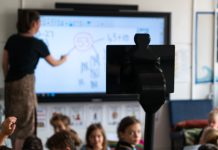


![New strategies for an old problem – Oral vaccines research Figure 1. Systemic immune responses elicited by oral dmLT-saponin combinations compared to injected vaccines (A) Cryo-electron microscopy (cryo-EM) image of the dmLT and saponin formulation demonstrating the formation of acid-stable micelle particles upon the addition of saponin to dmLT. (B) Preclinical evaluation of systemic serum IgG and IgA antibody responses following prime/boost vaccination. Antibody levels against the microbial protein antigen included in the vaccination were assessed two weeks post-final vaccination in immunized mice. Groups were stratified by vaccination route (intramuscular [IM] or sublingual [SL]) and adjuvant formulation (dmLT [D] and/or saponin [S]). Comparisons with unvaccinated controls (white bars) are shown. Statistical significance between groups is indicated (*P < 0.05), with the SL D+S group achieving the best IgG and IgA responses to vaccine antigen.](https://www.openaccessgovernment.org/wp-content/uploads/2025/01/Figure-01-218x150.jpg)
